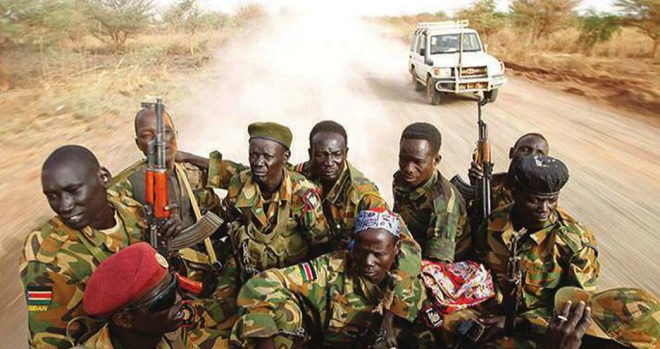
This October, there have been reports of many Ugandans returning to South Sudan where many suffered during the recent deadly clashes in parts of the country. And, with the volatility that has wrecked the newly independent country, it is always a matter of time before another round of clashes takes place, causing more death and destruction. For the thousands of Ugandans who live and work in South Sudan, their situation is different from the warring factions in the country because they cannot fight back. Instead, these Ugandans, at the slightest outbreak of war, have to scamper for safety back home, in the direst of circumstances. The Independent brings you tales of two of the hundreds of Ugandans who flock this volatile country in search of economic opportunity.
Fahad Tinka, a Ugandan from Masindi was working in South Sudan as a secretary at a law firm in the country’s capital Juba when fierce fighting erupted in July between bodyguards of President Salva Kiir and those of then-Vice President Riek Machar.
Tinka had moved to the country in December 2014, shortly after his graduation from Kyambogo University with a Bachelor’s Degree in Procurement. It was normal life at South Sudan Associated Advocates – until war jolted him on July 11.
“We heard gunshots at J1 (State House Juba), everyone abandoned their business and ran,” he recalls.
For Tinka that meant running about 2km to his home because taxis were not operating. When he got home, people had gone into hiding, a few around were in tears. His landlord’s children aged 17 and 13 years had been killed.
“There was confusion,” he recalls, “I was very horrified and I didn’t know my next move.” Tinka blames the fighting on a bad agreement between Machar and Kiir. “The agreement between Machar and Kiir spelt doom for the county. Each of the two was to move with their forces as freely as they could. This was not good for the capital because two different army forces were roaming freely,” he says.
The next day, Tinka and his landlord only identified as John planned to move to Yei, John’s hometown about 154km away. John had to move with his three wives, seven children and the bodies of his two children.
Early morning, however, a helicopter gunship started firing rapidly at Jebel, the headquarters of Machar which was not very far away from their home. Tension went up and their planned journey became doubtful, but they kept on assembling whatever they could carry.
The fighting at Jebel subsided at around noon and Tinka, John and his family embarked on their journey. Meanwhile, Machar’s forces of the Sudanese People Liberation Movement-In Opposition (SPLM/ IO) were headed for an assault on Juba.
Tinka says some South Sudanese fighters are hostile to Ugandans. They blame the Uganda army for unnecessary intrusion in their county. So, to ensure his safety, Tinka was hidden under the two coffins of the dead children at the back of the Diana pickup truck John was driving and had one of his wives in front. The rest of the family was at the back of the truck with Tinka and the coffins.
“John and I had become good friends. He was simply protecting me. It was a sure way of me going past the many road blocks that were set up everywhere,” Tinka says. He says they had their fuel tank filled before they set off although in Juba it is rare to see someone at a petrol station filling a tank. There is rarely fuel at the stations. They also had a drum of fuel at the back of the truck.
 The Independent Uganda: You get the Truth we Pay the Price
The Independent Uganda: You get the Truth we Pay the Price


